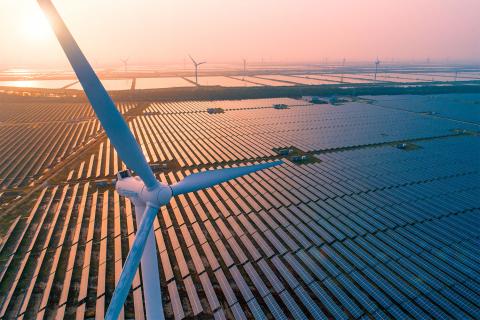Communication on carbon neutrality ambitions Challenges and risk - the case of TotalEnergies: (Paris Court, 23 October 2025, N° RG 22/02955)
Published on 24th November 2025
Key takeaways:
- Distinction between commercial communication and institutional communication, but no impermeability: Claims made in a commercial context are those that are likely to be sanctioned as misleading commercial practices. In this case, the claims made on TotalEnergies' commercial website, where consumers can subscribe to offers, are considered commercial practices. Conversely, communications made on the group's institutional website and on social media, without any direct link to the promotion or sale of products, which focus in particular on the group's change of name and strategy, are considered to be purely informational and thus not subject to the rules on misleading commercial practices. However, in order to interpret the scope and meaning of TotalEnergies' carbon neutrality claims, the court refers directly to the board of directors' report on which the campaign was based, thus using institutional communication to interpret the meaning of commercial communications and assess their misleading nature.
- Circumstances that may render a claim about a company's carbon neutrality ambition misleading (e.g. ‘carbon neutral by 2050’): Despite the absence of any express reference to the Paris Agreement in TotalEnergies' commercial communications and the fact that this Agreement only sets obligations for States, the court held that carbon neutrality should be understood in the sense given to it by the Agreement, and not in the light of the plan implemented at its level by TotalEnergies, which argued that this was permitted by Directive 2024/825 (known as ‘Empco’), which will soon be applicable. In reaching this conclusion, the court noted that the Paris Agreement was cited in the group's board of directors' report, which served as the basis for the communications, as well as the use of generalising terms (e.g. ‘together with society’). The court therefore criticised TotalEnergies for failing to mention in its commercial communications that its own scenario involved continuing to invest in fossil fuels, which runs counter to the objectives of the Paris Agreement and, in any event, makes it impossible to make any non-nuanced environmental claims. Thus, while it seems possible for a company to state an ambition of carbon neutrality whose definition and terms differ from those set out in the Paris Agreement, that company must, even if it has an implementation plan that complies with the Empco Directive, disclose in its communications any material information that would qualify the scope of its environmental commitments in relation to the overall carbon neutrality objective announced, especially when its communications are based on texts that do not provide for such nuances.

On 23 October 2025, the Paris Court of Justice ruled against TotalEnergies (TE) and TotalEnergies Électricité et Gaz France (TE&GF) for misleading environmental claims, following a lawsuit brought by Greenpeace France, Notre Affaire à Tous and Les Amis de la Terre.
In the wake of the name change from ‘Total’ to ‘TotalEnergies’ announced in May 2021, the group had launched a vast multi-channel communication campaign (website, press, television, social networks). The organisations criticised the group for misleadingly presenting its ‘ambition to achieve carbon neutrality by 2050’ and its positioning as a ‘major player in the energy transition’, as well as the environmental performance of fossil gas and agrofuels.
On claims relating to carbon neutrality
The associations asked the court to classify as misleading commercial practices the claims that the TotalEnergies group had ‘a carbon neutrality ambition by 2050’ or ‘net zero 2050’ and that it was or would become ‘a major player in the transition’, as well as those leading consumers to believe that the group had adopted a climate strategy placing it on a trajectory compatible with a global ‘1.5°’ trajectory in accordance with the Paris Agreement and existing benchmarks, in the context of their communications.
In response, TE and TE&GF argued, in essence, that most of the communications were part of the group's institutional communications, with no direct link to the sale of products, and therefore could not be classified as commercial practices within the meaning of Directive 2005/29 on unfair business-to-consumer commercial practices (hereinafter ‘Directive 2005/29’) and incorporated into the French Consumer Code. They also argued that the associations had not proven that these allegations were likely to influence consumers' purchasing decisions, since, in their view, the choice of gas and electricity supplier depended primarily on consumers' domestic equipment, over which they had no control, and on price. Finally, they refuted the misleading nature of the communications, arguing that there was no regulated trajectory or scientific consensus requiring companies to immediately stop all fossil fuel investments in order to achieve carbon neutrality, and that the Paris Agreement, particularly insofar as it defines carbon neutrality on a global scale and the objectives that States must achieve, was not directly applicable to them.
Firstly, the court rejected the associations' claims relating to certain communications that appeared on the parent company's non-commercial website. The court considered that an examination of their content showed that they were informational communications with no direct connection to the promotion, sale or supply of a product to consumers. These communications did not therefore constitute a commercial practice and were therefore outside the scope of Directive 2005/29.
However, the court considered that the communications taken from the commercial website published by TE&GF, which included subscription procedures and offers, were commercial practices directly related to the supply of products to consumers and were therefore subject to the rules of Directive 2005/29.
With regard to the misleading nature of the disputed claims, the court held as follows:
- The group referred to the concept of global carbon neutrality, within the meaning of the Paris Agreement, in its report to the board of directors on the resolutions submitted to its general meeting, on the basis of which it had launched its campaign. Based in particular on the observation by the French Financial Markets Authority (AMF) that companies were increasingly referring to the concept of carbon neutrality within the meaning of the Paris Agreement to describe their ambitions, and in view of the vocabulary used by Total in its communications (the objective of achieving carbon neutrality ‘Facing the climate challenge’, ‘in a collective spirit’, ‘together with society’), the court considered that the group was ‘unambiguously echoing’ the concept of global carbon neutrality within the meaning of the Paris Agreement, despite the absence of any explicit reference to this Agreement in its commercial communications.
- In its commercial communications, the group referred to its dual ambition of achieving carbon neutrality within the meaning of the Paris Agreement and being a major player in the energy transition, without specifying to consumers that the TotalEnergies group had its own scenario, which consisted in particular of making its continued investment in oil and gas compatible with its ambition of carbon neutrality, continuing its investments in oil and gas, which clearly runs counter to the recommendations of scientific work aligned with the Paris Agreement. Consequently, the TotalEnergies group's environmental claims were likely to mislead consumers by leading them to believe that by purchasing its products or services, they were contributing to the emergence of a low-carbon economy.
The absence of any mention or reference to the collective objective of reducing greenhouse gas emissions prevented consumers from understanding the scope and limitations of the group's commitment and therefore constituted a misleading omission. These claims clearly had a substantial effect on the economic behaviour of a normally attentive and informed consumer whose choice, while still guided by price, increasingly takes into account the environmental qualities of the product or service.
The court ordered TE and TE&GF to cease disseminating the disputed communications on their website. The court also ordered them to publish a link to the decision on their website for 180 days, in a visible box. Finally, the companies were ordered to pay each of the associations the sum of €8,000 in compensation for the damage suffered.
On allegations concerning the environmental performance of fossil gas and agrofuels
The associations also asked the court to rule that the following claims regarding environmental impact were misleading:
- fossil gas (‘cheap’, ‘lowest emissions’, ‘essential complement to renewable energies’, ‘lower carbon footprint than other fossil fuels’, etc.); and
- of agrofuels (claims that they would enable ‘a reduction of at least 50% in CO2 emissions compared to their fossil fuel equivalents’ or even ‘90%’, and would be an essential solution for decarbonising transport).
As most of the disputed communications were posted on Total's social media accounts as part of its communication campaign around the group's name change and new strategy, the court considered that they were purely informational in nature and had no direct link to the promotion, sale or supply of energy to consumers. According to the court, therefore, these could not be considered commercial practices within the meaning of Directive 2005/29.






